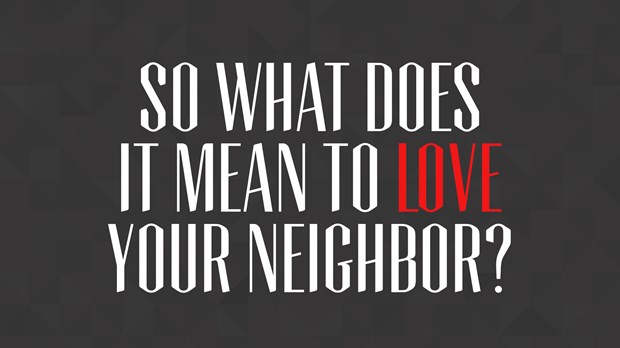
In Matthew 22:36-39, a lawyer challenges Jesus asking him, “Teacher, which is the great commandment in the Law?”
Jesus answers him saying, “You shall love the Lord your God with all your heart and with all your soul and with all your mind. This is the great and first commandment. And a second is like it: You shall love your neighbor as yourself” (ESV).
The first verse Jesus quotes is from Deuteronomy 6:5, but the second is from Leviticus.
For Jesus, to love your neighbor as yourself meant Leviticus 19:9–18:
“When you reap the harvest of your land, you shall not reap your field right up to its edge, neither shall you gather the gleanings after your harvest. And you shall not strip your vineyard bare, neither shall you gather the fallen grapes of your vineyard. You shall leave them for the poor and for the sojourner: I am the LORD your God.
You shall not steal; you shall not deal falsely; you shall not lie to one another. You shall not swear by my name falsely, and so profane the name of your God: I am the LORD.
You shall not oppress your neighbor or rob him. The wages of a hired worker shall not remain with you all night until the morning. You shall not curse the deaf or put a stumbling block before the blind, but you shall fear your God: I am the LORD.
You shall do no injustice in court. You shall not be partial to the poor or defer to the great, but in righteousness shall you judge your neighbor. You shall not go around as a slanderer among your people, and you shall not stand up against the life of your neighbor: I am the LORD.
You shall not hate your brother in your heart, but you shall reason frankly with your neighbor, lest you incur sin because of him. You shall not take vengeance or bear a grudge against the sons of your own people, but you shall love your neighbor as yourself: I am the LORD” (ESV).
For Jesus, to love your neighbor as you love yourself was to practice justice towards your fellow human beings:
- Live generously towards the poor and alien (Lev. 19:9–10).
- Do not steal from anyone (Lev. 19:11).
- Do not be deceptive in dealings with people (Lev. 19:11).
- Do not swear in God’s name (Lev. 19:12).
- Do not oppress, rob, or exploit the poor by paying unfair wages (Lev. 19:13).
- Do not curse the deaf or put a stumbling block before the blind (Lev. 19:14).
- Do not be partial to the poor or show favor to the great but judge honestly (Lev. 19:15).
- Do not commit financial fraud. The word slander in Hebrew is rakhil, and it may be related to the term rokheleth, meaning merchant. (Lev. 19:16).
- Do not hate your brother (Lev. 19:17).
- Do not seek revenge or hold a grudge but extend forgiveness (Lev. 19:18).
For Jesus, speaking to Jews shaped by the Torah, this is what loving your neighbor looked like. In 21st-century America, how does this affect how you love your neighbor?
Can you imagine a world where people loved each other this way?
Marinate on that.



















